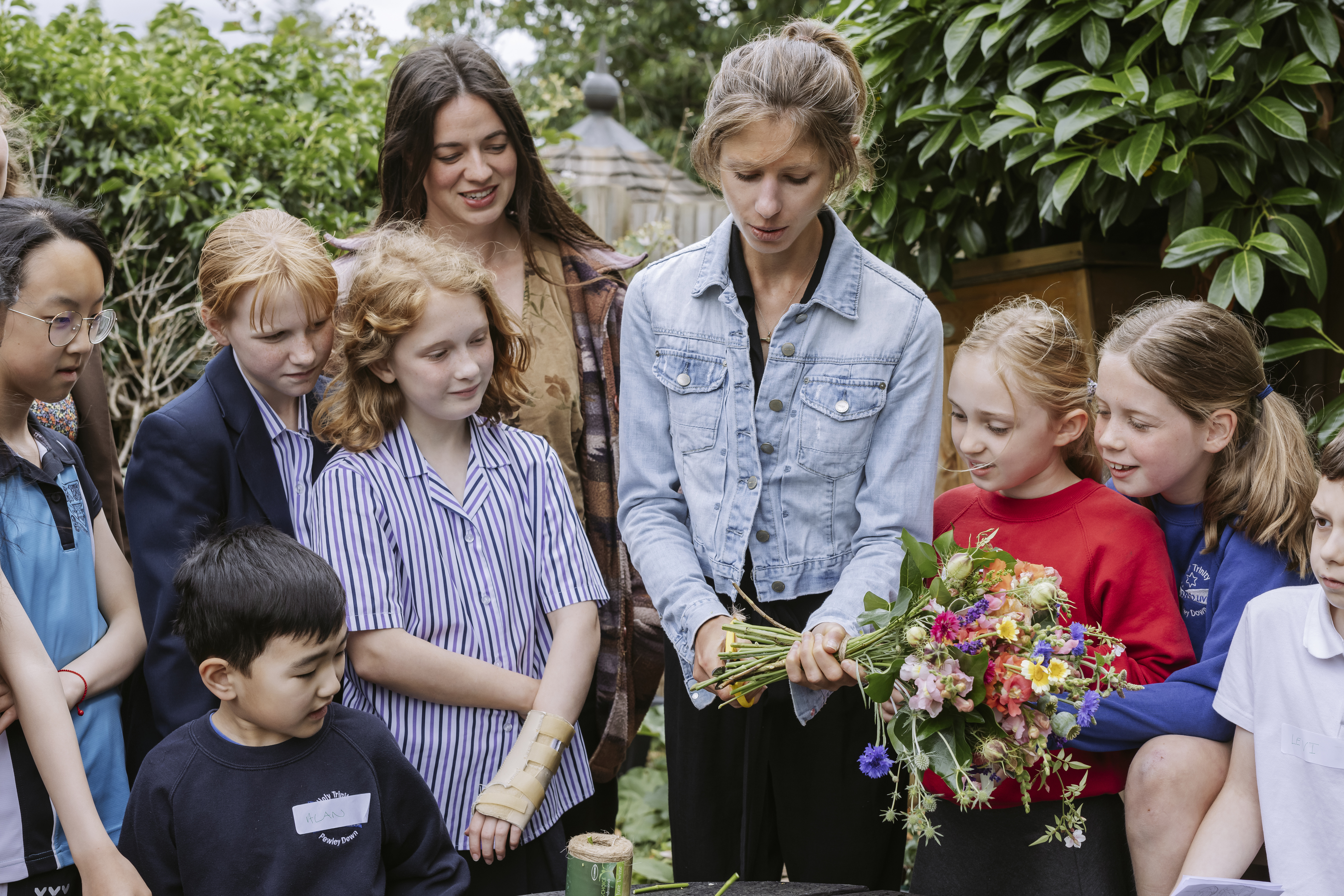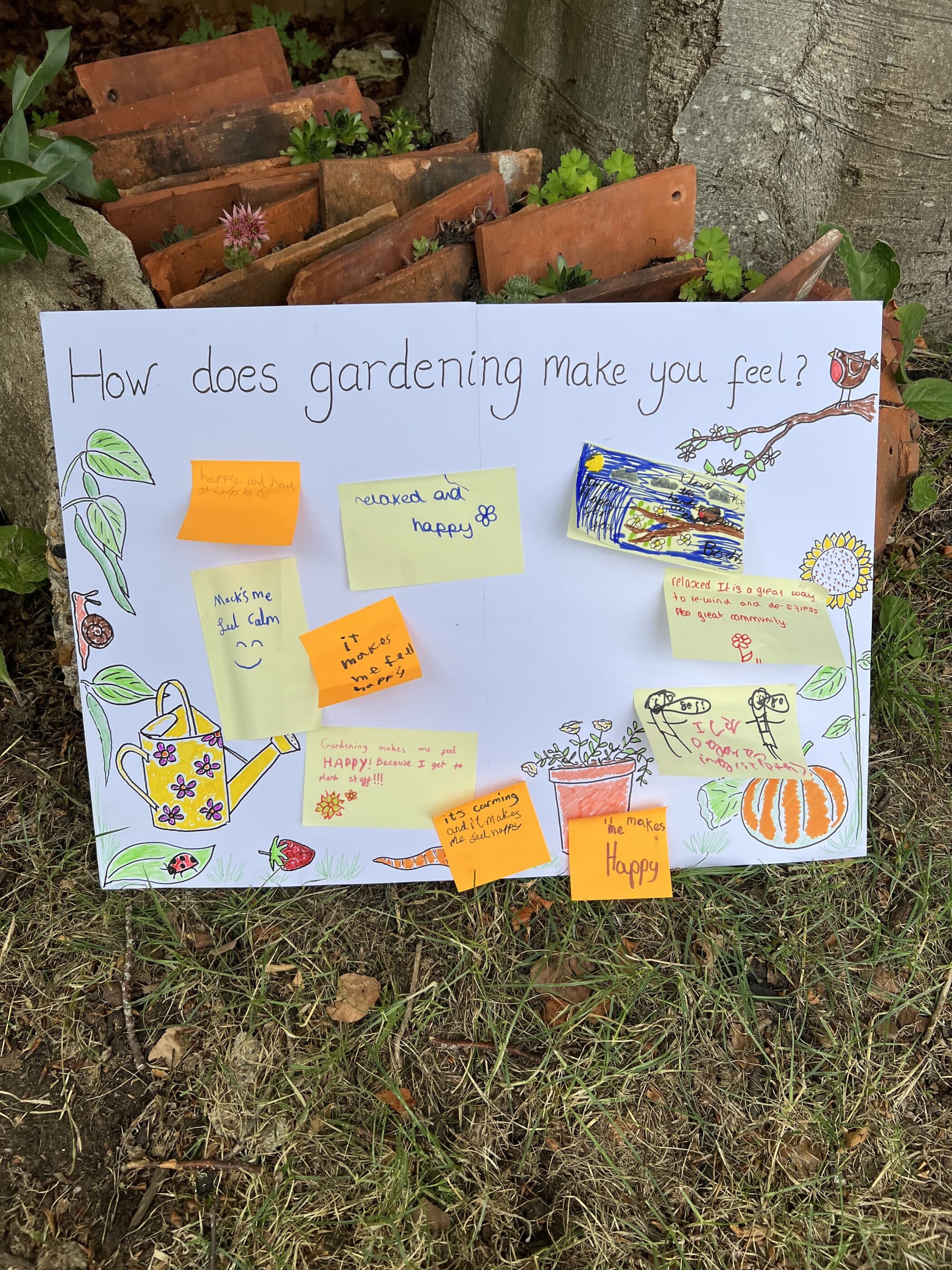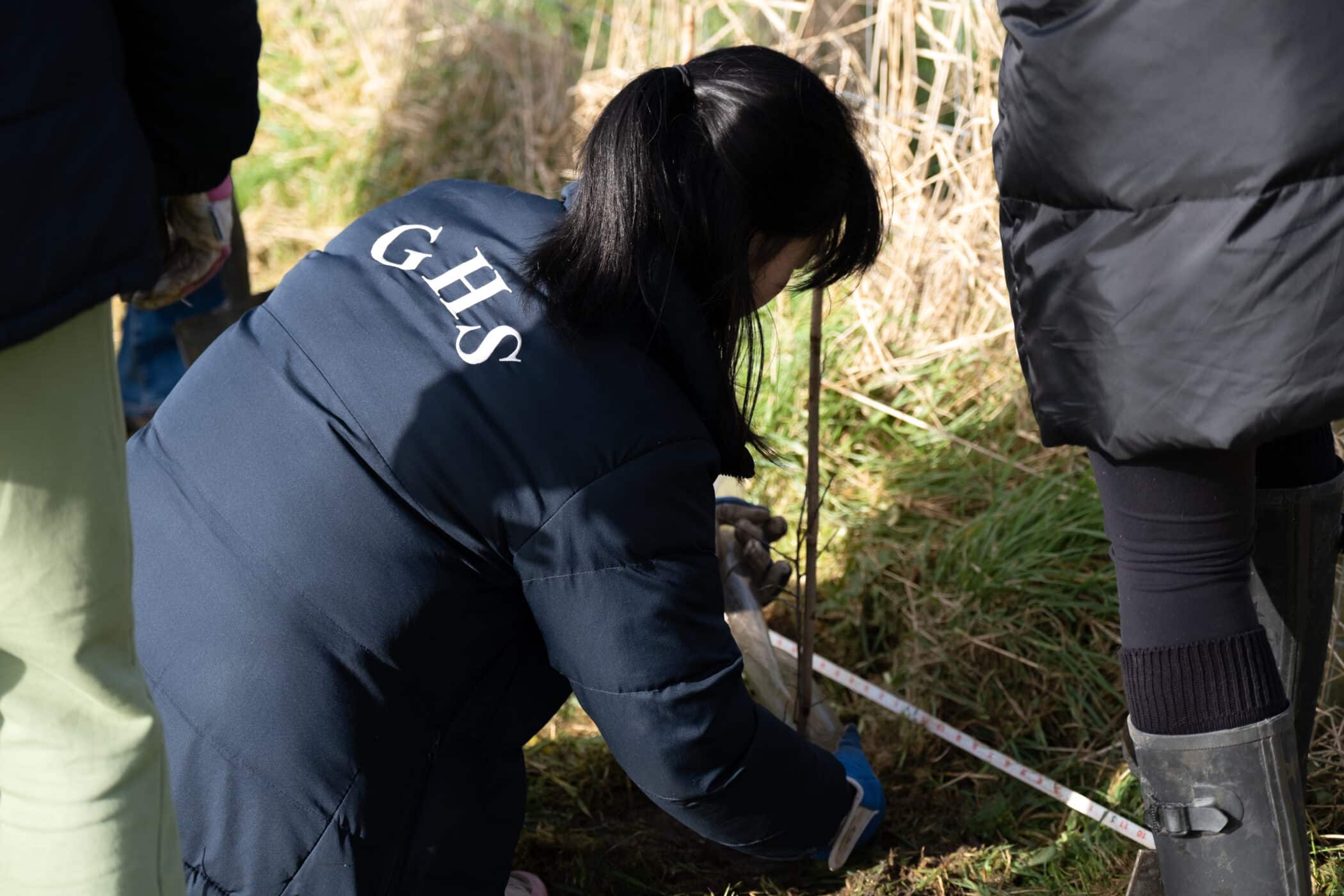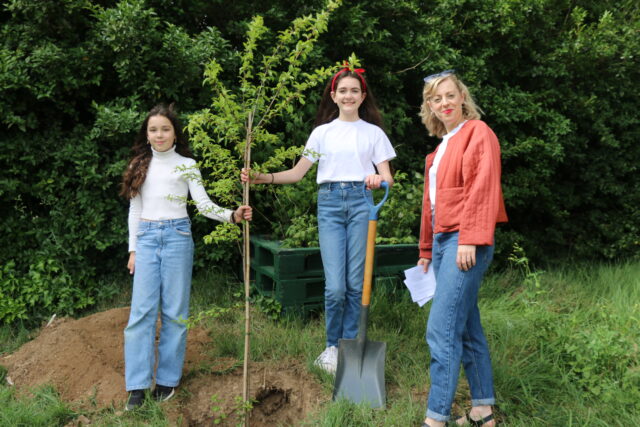Case Study
Nature’s Classroom: Cultivating Curiosity, Conservation, and Connection at Guildford High School

To a person uninstructed in natural history, his country or sea-side stroll is a walk through a gallery filled with wonderful works of art, nine-tenths of which have their faces turned to the wall.
Nature Deficit Disorder. This term was first used in 2005 to highlight the damage being done to both the mental and physical health of children by increasing alienation from the outdoors. But since the 1980s, the Japanese have been encouraging shinrin-yoku, a national pastime of spending more time in nature to enhance health and happiness.
We now have over 1000 impressive scientific studies, underlining the physiological and psychological benefits of connection with nature. Walking amongst trees reduces levels of the stress hormone, cortisol, while improving mood, lowering anxiety and delivering a boost to the immune system from breathing in phytoncides, which trees emit to protect themselves from germs and insects. These essential oils made up of antimicrobial properties, means blood pressure is reduced and we have an increase of levels of adiponectin, a hormone than regulates the metabolism of lipids and glucose, thereby protecting against heart attack and even diabetes.
But perhaps all this science is a little unnecessary. We all know the magic of a walk through a sea of bluebells, listening to the songs of birds in the trees, feeling sunlight streaming through leaves. Even thinking about it calms the mind.
In 2023 we introduced Natural History as a subject at Year 9 level. The aim is to continue to inspire a fascination about the rich and diverse natural world, engendering a lifelong curiosity and a commitment to safeguard it.
We are delighted that students are developing a deeper understanding of flora and fauna and are enjoying exploring how the natural world has been shaped and has evolved, alongside ways in which humans influence, conserve and protect it.
The year starts with the topic ‘Flora and Fauna’, highlighting the diversity, complexities, and interconnectedness, of life on earth in contrasting habitats. ‘Life in the Early World explores the fossil record, dinosaurs and the rise of mammals.
The topic ‘Human Impact on the World’ explores farming and land management, conservation methods, marine and nature reserves and invasive species. The course helps to build a culture of knowledge and awareness of other groups of people, plus tolerance and respect with exploration of differing views towards conservation around the world, how different indigenous groups interact with biodiversity and how different people respond to the natural world e.g. in music, art and other creative expression.
Students are being equipped with skills to support and extend their learning in both arts and sciences: practical skills such as observation, sampling and recording and digital and creative skills. We see learners who are more confident, resilient, informed and independent in Natural History lessons and beyond.
Students can experience the health and wellbeing benefits from engaging with the natural world, not just while they are at school, but in the future. We see an increasing number of alumni in careers where an understanding of Natural History is vital; so many roles today require an understanding of concepts of sustainability, critical thinking, and solutions-focused action planning.





Appreciation of our natural world reaches far beyond the Year 9 course at Guildford High School. It is woven through the fabric of the curriculum and deep within our school ethos. Enrichment talks and PSHE topics such as Living in the Wider World on Sustainable Transport, Talking Rubbish and Wildlife Good News, regularly take place across all year groups.
We are part of a growing global community taking positive action to live sustainably. As long-time holders of the Eco School Green Flag Award, our Green Team meets weekly and leads our pupils and staff in taking action to reduce waste, conserve water, save energy, increase biodiversity, live healthily and think as global citizens.
Pupils generate new initiatives on a regular basis and also bring back favourites each year, such as Fast-Fashion Free February, which sees pupils bringing in over 1000 items of clothing for a giant clothes swap in the school hall. This initiative won the Eco Schools Innovation award in 2022 as continues to enjoy the enthusiastic support of our pupils!
Getting into nature and engaging in hands-on activities allows us to work with many partners, including Surrey Wildlife Trust. Pupils have planted over 800 trees on our school site, a remarkable achievement. The school allotment has been a particularly special addition to our provision. Two gardening clubs operate from this space and we enjoy hosting local school partners weekly. This fosters relationships within our wider community, while nurturing a sense of care for and appreciation of our environment.
Giving pupils voice and agency is without doubt, the key to success.
In the end, we will conserve only what we love; we will love only what we understand and we will understand only what we are taught.


